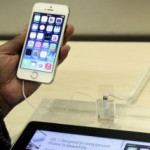 I’ve written a few times about the rather ambiguous relationship many academics have with social media as a means of reaching out to their audience.
I’ve written a few times about the rather ambiguous relationship many academics have with social media as a means of reaching out to their audience.
For instance, a recent study found that researchers are generally steering clear of social media, either to engage with stakeholders or to promote their research.
“Only a minority of university researchers are using free and widely available social media to get their results and published insights out and into the hands of the public, even though the mission of public universities is to create knowledge that makes a difference in people’s lives,” the researchers said.
Of course, this isn’t just the case in academia. A study from last summer found that when doctors share information via Twitter, it has less impact than when shared via other media.
A recent paper suggests however that the platform may still have some value for medics. It suggests that Twitter can be invaluable in preparing doctors for the kind of questions patients might have.
“Many people go online for health information, but little research has been done on who is participating in these discussions or what is being shared,” the authors say.
The research team spent six months observing conversations around stem cell research on spinal injuries and on Parkinson’s disease on Twitter. It emerged that around 1/4 of all spinal tweets were made by health professionals, whereas around 1/6 of tweets around Parkinson’s were.
Most of these tweets related to research findings and the latest medical breakthroughs, with most linking to the relevant research reports.
There was also an interesting differential between the kind of content shared on each disease. Tweets about spinal injury tended to be about clinical trials, whereas Parkinson’s related tweets were more often about new tools or methods used in conducting research.
Of course, whilst it’s one thing measuring the output in terms of what content is shared, it’s much less clear who is actually reading them. The researchers believe that it gives an indication that patients are consuming various scientific research, but I’m not quite sure how they can reach such a firm conclusion, especially given the lack of any real analytics for Twitter.
One undoubted positive to come from the study however is the reaffirmation that researchers need to consider a wider range of sources when distributing their findings to a wide and relevant audience. Social networks will undoubtedly play a part in that, as will the various online communities that are springing up for patients with particular illnesses.
I think Twitter would be a rubbish platform for doctors as it requires so much time to make use of it, and that's one thing doctors don't have much of.